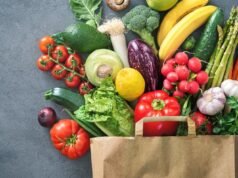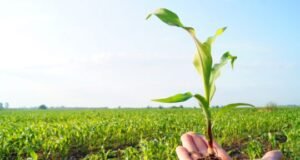Organic farming is a system of agricultural practice that utilizes natural materials, such as compost, bio-fertilizers, and natural pesticides as well as in situ suitable plant varieties. Organic farming systems including its product are known safe for human beings and the environment. The International Federation of Organic Agriculture Movements (IFOAM) defines organic agriculture as “a production system that sustains the health of soils, ecosystems, and people. It relies on ecological processes, biodiversity, and cycles adapted to local conditions, rather than the use of inputs with adverse effects. Organic agriculture combines tradition, innovation, and science to benefit the shared environment and promote fair relationship and a good quality of life for all involved“(IFOAM, 2008).
The concept of organic agriculture by USDA is “an ecological production management system that promotes and enhances biodiversity, biological cycles, and soil biological activity. It is based on minimal use of off-farm inputs and on management practices that restore, maintain, and enhance ecological harmony”.
In 2002, the U.S. Department of Agriculture (USDA) established a set of national standards that food labeled “organic” must follow. As a result, organic corn must be raised without the use of synthetic pesticides or fertilizers. To ensure that appropriate production methods are being applied at the farm level, government-approved inspectors evaluate organic operations to validate that approved USDA organic practices are being used. However, organic growers with less than $5,000 in sales do not need to be certified. Besides companies that elevate, transport, or process organic grains must also be certified by the USDA.







